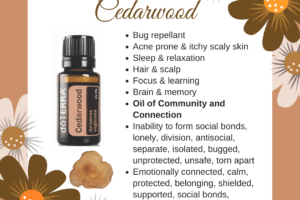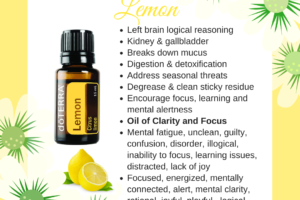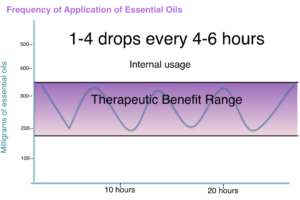Modern scientific knowledge of essential oils and renewed recognition of the good nature has to offer began in France…
- 19th Century – arise of essential oils as fragrances and flavorings
- René-Maurice Gattefossé French Aromatherapy(1800s)
- Jean Valnet surgeon used essential oils rather than modern medicine to avoid side effects (WWII)
- Robert B. Tisserand researched and furthered Gattefossé’s work(1993)
Since then, the study of essential oils has increased exponentially.
There are hundreds of research facilities and institutions now studying on a scientific level the effects of essential oils, and our knowledge is beginning to increase dramatically.
The main uncertainty from those skeptical about essential oils can be put into two categories:
Claims are overreaching
There is a lack of scientific evidence
You can easily find these skeptics on the internet. I agree with them that many outlandish claims about what essential oils can do are overreaching.
However, there are so many benefits and claims that are spot on. These skeptics also acknowledge the proven benefits of essential oils.
And the scientific research is growing all the time. Some claims may never be substantiated, but I believe we will be very surprised to find out what the big picture looks like. I believe we can only see not the tip of the iceberg of what will be a massive step forward for mankind as we enter the age of returning to nature.
You probably also sense the trend. It will only get stronger. No one is asking for more synthetics.
Much much research is being carried out about the therapeutic benefits of essential oils.
Although our best scientists are still working on understanding many of the claims being made, it is clear that what we are learning is backing up what ancient civilizations have known.
I won’t review some of the findings, but it is so promising to know that there are safer alternatives to many of the chemical products we use today.
Skeptics may ask if these studies are reliable. Well, yes, that’s the best science can do. These are sound reliable scientific studies.
A common response I have seen from people … well like me… is that the therapeutic benefit all happened in your head. This is what is referred to as placebo effect. The idea behind the “Placebo write-off” is: Maybe it just works for people who believe in it.
Well, first of all it worked, so that says something. Even clinically proven chemicals benefit from the placebo effect. This is always a possibility and is often a contributor to the success of any remedy, whether we like it or not.
We can separate out the placebo effect with good science. Simple scientific methods can test whether the effect arose from psyche or chemistry.
A Sound Reliable Scientific Study is…
- Statistically significant (a bigger change than explainable by luck)
- Control for variables
- Double-blind (administrators and subjects not aware)
- Randomized
- Placebo controlled
- Crossover
More studies will come, too. For now, you can benefit from essential oils even before we can demonstrate the benefit in a laboratory. You have your personal laboratory.
It’s called Anecdotal and experiential evidence: Many amazing accounts about the fantastic abilities of essential oils come from Anecdotal Evidence (people’s own stories). This is the source of the overreaching claims (which are true for some people, but may not be so for others).
Something anecdotal has to do with anecdotes — little stories. Anecdotal evidence is based on hearsay rather than hard facts. People like to share stories about things that happened to them, or that they heard about, to make a point. That kind of talk is anecdotal: based on small, personal accounts. (Although not statistically sound or scientifically proven, people understand there is still great value in these experiences). Further research will help us better understand why some have these experiences and others don’t.
These experiences can vary from one person to another as one person’s body and root causes vary. An interesting quality of essential oils that does not help alleviate the confusion is that essential oils react so differently from person to person. But the good thing is that there are so many essential oils available, that you can usually find something that works. And if you don’t, you haven’t lost anything. However, if you find something that works for you, you have it will likely be a superior solution because of it pure and natural attributes.
A sound reliable scientific study must be
- Statistically significant
- Control for variables
- Double-blind
- Randomized
- Placebo controlled
- Crossover
Anecdotal and Experiential Evidence
These experiences can vary from one person to another as one person’s body and root causes vary.
It takes 17-20 Years to go from Medical Journal to Mainstream
If something works well, people will pursue it
Essential oils produce amazing results Many many articles and research papers are being published in medical journals at an ever increasing rate all over the world. As essential oils gain popularity, they will be studied more and more. I can just see it becoming a cultural sensation.
Naturally, if we find something that seems to be working, not only do we pursue it, but we want to understand it. Essential oils produce some amazing results, and that has become a wonderful catalyst driving our scientific community to understand more. Wow. Sounds great. Does this mean that essential oils will replace drugs and modern medicine in the future?
Never. Ha, you make me laugh. Where do you come up with these questions?
Essential oils are never meant to replace drugs. There will absolutely always be a need for drugs in society.
Medicine will always be necessary. There is no essential oil that can put a cast on a broken leg, or remove an object from a wound. We will always need medical professionals. They are amazing people and devote themselves to years of study to serve others. Doctors want you to be healthy.
They have a good grasp on how your body works. The most dedicated doctors recognize the unpleasant and sometimes harmful side effects drugs can have. These doctors are reluctant to prescribe a drug unless necessary.
Being healthy and well makes most drugs unnecessary. When you healthy or well, you no longer need to rely on drugs or go to the doctor. Essential oils are there to help improve your wellness.
Essential oils are NOT a magic bullet that can cure everything. However, they can provide a tremendous tool to empower us to better care for our own wellness and that of our family.
What role do essential oils play?
As a rule of thumb, depending on the seriousness of the ailment or problem, you can first look for a natural solution
take your illness to the medical professionals, use essential oils and other natural remedies to care for yourself and improve your overall wellness
Essential oils can help improve your wellness on many levels both emotional and physical.
Wellness improves your body’s potential to heal.
I believe that the right essential oils can be used to care for 95% of your everyday health and wellness needs.
So, can essential oils cure cancer? <crazy questions. who writes these?>
Claiming that essential oils can cure cancer would be a very misleading claim to make because there are so many causes and types of cancer, and people are so different, one person’s experience will not be like anthers. But no one can argue with the fact that the healthier you and the cells in your body are, the more potential you have to overcome any disease or ailment, cancer included. This is how essential oils can help you find strength in the face of cancer. I have seen some very healthy people emerge from cancer. Their improved level of wellness certainly played an important role in that: it improved their chances. In the cancer game there are no guarantees, just a balance of factors.
Let me share with you some fantastic knowledge about essential oils that our scientists have put together.
Essential oils are made up of many compounds. Compounds in Essential Oils can be broken down into sub categories. These categories are….
- Monoterpene Backbone
- Esters
- Alcohols
- Ketones
- Phenylpropene
- Phenols
- Aldehydes
- Monoterpenes
- Ethers
- Sesquiterpene Backbone
- Alcohols
- Sesquiterpenes
- Ethers
We are learning that specific reliefs can be linked with these sub categories.
Looking at the individual constituent and comparing it to the therapeutic benefit we experience from am essential oils with that constituent as a main ingredient, we see a correlation between the constituent and the therapeutic benefit.
The idea is even more sophisticated considering that one essential oils has many constituents.
I want to say a word about making claims about essential oil properties. Essential oil production is not regulated but making claims is. Because essential oils are marketed as supplements and food rather than drugs, it is not legal to make what is called “disease” claims based on the industrial-age thought that drugs cure diseases not food.
There are so many benefits of essential oils that can’t be claimed because of this limitation. You see here a wheel concerning emotional therapeutic benefits. This is allowed because emotions happen to everyone and are not considered a disease or sickness that required medical attention.
Thus it goes to follow that just because a claim is not being named, doesn’t mean that it is not a benefit that the essential oil has. For now, we will stick with approved claims and the standard FDA disclaimer that …
*These statements have not been evaluated by the Food and Drug Administration. This product is not intended to diagnose, treat, cure, or prevent any disease.


















